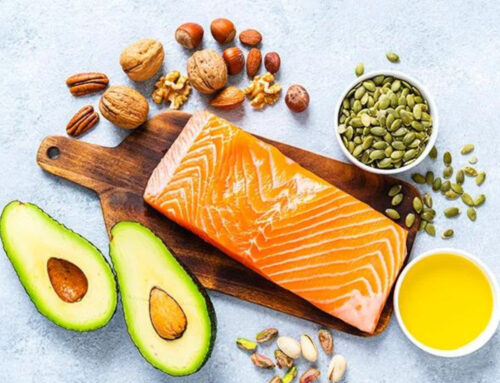The New York Times recently published an article titled The Everyday Chemicals That Might Be Leading Us to Our Extinction, describing “How Our Modern World Is Altering Male and Female Reproductive Development, Threatening Sperm Counts, and Imperiling the Future of the Human Race”.
I decided it was time to discuss the topic of infertility, as I receive emails daily from women struggling with infertility and wondering if fasting may help. The short answer is yes, but let’s talk about the two root causes of infertility first.
Underlying fertility are two key issues, insulin resistance and toxicity…and this applies to both men and women.
Insulin resistance
If you are a male suffering from insulin resistance, intermittent fasting and simple ketogenic, low carbohydrate eating can help regulate insulin levels. You’ll want to use something like a Keto Mojo or a continuous glucose monitor, to track your blood sugar levels. This will help provide useful feedback on which foods are elevating your blood sugar and may be creating your insulin resistance.
For women, the topic of insulin regulation becomes a little more complex, as we must take into consideration a woman’s monthly menstrual cycle and hormonal needs. Women will want to follow what I developed as The Fasting Circle for Women, which I outline here for women trying to conceive.
Day 1-10
the female body is trying to make estrogen. This window of time is conducive to all types of fasting—including intermittent fasting, autophagy fasting, 24 hour fasting and even 36 or 48 hour fasting. Along these same lines, this is an ideal time to adopt a ketogenic eating style, including keto-vegetarian and ketobiotic eating, which entails:
- 50g net carbs
- 50g protein
- 60% of food coming from good fat like ghee, butter, nut butter and avocados
- 1 cup of fermented foods daily: sauerkraut, kimchi, fermented yogurt, etc.
Day 11-15
Women typically ovulate between days 11-15. This is when estrogen and testosterone are at their highest and a little blip of progesterone will appear. During this time you’ll want to stick to intermittent fasting no more than 15 hours, leaning heavily into plants and vegetables that help support the estrobolome, the specific bacteria in your microbiome that break down estrogen for you to use. Again, during this time your focus should be on creating a strong microbiome. This mean avoiding things that destroy the microbiome like:
- antibiotics
- chemicals like those found in hand sanitizers, bleach and pesticides
- stress
- monotrophic diet (ie. lack of variety in what you eat)
- lack of sleep
- lack of sufficient physical activity
- lack of contact with nature
Days 16+
Until the day you bleed or know you have conceived, you will step out of fasting entirely and support your body with hormone building foods, as during this time progesterone levels are their highest and estrogen will be rising as well. This is not a time to binge with unhealthy foods, instead lean into hormone supporting foods like:
- Yams
- Beans
- Squash
- Berries
- Grass-fed meats
- Raw nuts
- Seeds
===> Grab my FULL list of hormone building foods!
Toxicity
The second root cause of infertility is toxicity. This is a less talked about topic, but is beginning to gain media attention, as evidenced in the NYT article that went on to say: infertility may be contributed to “growing exposure to “endocrine disrupting chemicals” that are found in everything from plastics, flame retardants, electronics, food packaging and pesticides to personal care products and cosmetics.
===> Everything you need to know about toxins!
Preconception is the perfect time to assess your toxic exposure and make the necessary changes to your home and lifestyle that will reduce your toxic load. In fact you may want to take my Toxicity Quiz!
I recommend you ask yourself these questions:
- How much plastic are you using? This includes plastic water bottles, food storage containers, coffee cups, etc. You definitely want to avoid all plastics that come in contact with your food and beverages. You even want to avoid touching store receipt paper as thermal receipt paper has been shown to be covered in toxic BPA and BPS plastics.
- Are you eating organic foods? Pesticides sprayed on conventional foods will deteriorate the inner lining of the gut, creating permeability and what is commonly referred to as “leaky gut”…which feels like bloating, digestive issues, constipation or diarrhea and food sensitivities. If you are drinking coffee, make sure it’s mold free and organic, like Camano Island and eating meats that are grass-fed, like US Wellness Meats.
- Are you drinking clean water? The Environmental Working Group found more than 250 contaminants in tap water. You can check your tap water here. Water filtration is a must, as well as avoiding plastic bottled water. You can shop my favorite water filters here in the HOME section of my shop. I have a range of products, from under-sink filters to counter top and even an inexpensive but highly effective pitcher style filter.
- Are you using non-toxic personal care products? Chemicals found in popular beauty, cosmetics and personal care products like shampoos, body wash, hand soaps, toothpaste and deodorant are absorbed or ingested directly into your body. You should definitely check the rating of all your products on the Think Dirty App or EWG Skin Deep site. I recommend using Derma Colonizer on your skin to help restore your microbiome, then swap your toxic products with healthier alternatives. Shop my favorite beauty products here!
- Are you using non-toxic home cleaning products? Chemicals found in commercial cleaning products like Lysol, Clorox and 409, destroy the microbiome. In fact, the CDC relaxed its rules on cleaning to prevent COVID-19, saying “intense disinfectants are likely doing us more harm than good” (read article). My favorite is Branch Basics because it is so versatile and can be used for cleaning, laundry and even washing produce.











Hi Dr. Mindy!
I’ve been loving your YouTube videos, podcasts, and blog posts. This particular post caught my attention as I am wanting to conceive this year. However, I’m diabetic, and have PCOS (which I’m assuming ultimately stems from insulin resistance).
Over the past few months I’ve been doing strict “dirty keto”, and have been doing longer fasts, usually only eating 1 meal per day. I’ve lost about 30 pounds and am feeling great. My periods are coming a little more consistently too, usually every 45 days or so. Because of the PCOS, I have an extremely hard time tracking my cycle. And because of the diabetes, I’m almost scared to include more higher carb foods in my diet (like the yams you mentioned!).
I’m extremely sensitive to carbs and am worried that I’ll lose all my progress if I start increasing the carbs during the second half of my cycle. Not sure if you can give any insight to my situation or not, but I would greatly appreciate it if you can!!
God bless!
Hi! This doesn’t quite correlate with a video on YT where you say to fast freely for 4 days, after the first 4 days of ovulation. I’m confused now?
I am confused as well… here it says not to fast after day 16, but in YT it’s different. Which one is it? or it depends?
Hi! I wanted to ask your opinion about pregnancy and fasting. I’m very used to fading 15 hours a day but have found I’m pregnant and I’m not sure if I should stop that. Some minimal research says it’s not good to fast longer than 12/13 hours but at the same time it feels like we shouldn’t be eating all day, even when pregnant?!
In one of your YT vids you say for fertility not to fast longer than 17 hours, but on this you say you can fast longer, I’m confused. I get you can’t fast long for fertility but that’s not what its saying above on this fertility post.
Dear Doctor, do you have any material on fasting while pregnant? Especially if one has only discovered the benefits of fasting after falling pregnant and is facing some of the issues that can be resolved by fasting in normal circumstances eg high blood pressure.